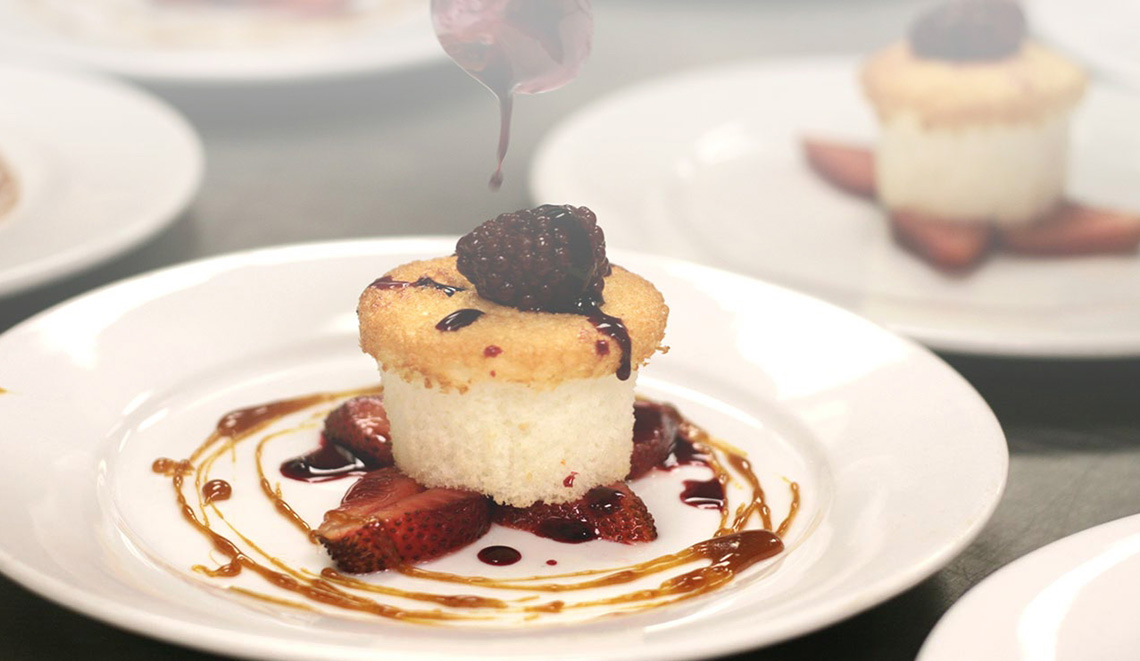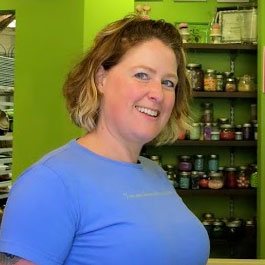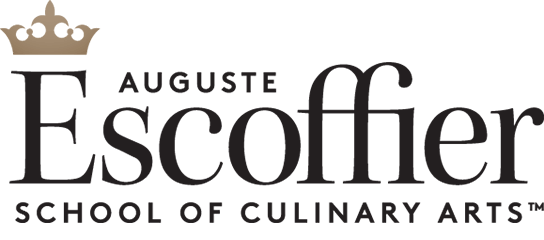
Pastry Arts
DIPLOMA

“I chose Auguste Escoffier School of Culinary Arts because of the hands-on environment, attention to detail and the reputation of the school. My education far exceeded my expectations. The Chef Educators really care about teaching and are open to working with any student that wants help. My class was made up of people with all levels of skill and from all parts of the country. This really enhanced the experience, because we learned from each other.”*
Monica Paredes
Program Highlights

Hands-On Training

Small Class Sizes

Classic & Contemporary Techniques

Specialty Diets & Artisanal Baking

Industry Externship

Experienced Chef Educators

Career Services Support

Nationally Accredited
Stacey, Sous Chef, Sway Austin*
Pastry Arts Diploma
30 Weeks
6-week Class Terms
24 weeks of
hands-on training
6 weeks of industry externship
Curriculum
Fundamentals of Baking and Pastry
The Fundamentals of Baking and Pastry 6-week class begins with course work concentrating on food safety and sanitation in the professional kitchen. The importance of proper hygiene, food handling and storage, cleaning, pest control and HACCP in a food service operation is explored.
Additionally, this course reviews mathematical fundamentals such as multiplication, division, fractions, ratios, baker’s percentage, temperatures, and other mathematical factors related to the baking industry. Students will learn costs and projections as illustrated through yield tests and recipe pre-costs. The course includes baking and pastry mixing methods and ingredient identification. The framework to understand the principles of the following cooking and baking techniques are taught: classic pastry doughs, pate a choux, fried doughs, pies and tarts, baked custards and stove top custards, quick breads, scones, muffins, cookies, brownies and bars, as well as dessert sauces. Basic knife skills are also covered.
Patisserie
The Patisserie 6-week class begins with learning the classic meringue techniques that lead into the creation of European buttercreams. Students will learn classic mixing methods and piping skills. Specialty dessert cakes and decorated special occasion cakes are a major focus of this course work concentrating on factors related to the baking industry. Frozen desserts and plating are focused in this course. The course includes hand modeling techniques using rolled fondant, gum paste, marzipan, and modeling chocolate. The framework to understand the principles and techniques in the construction of putting together a wedding cake are also covered. Pastry and baking production timelines are examined in this course. Finally, students are introduced to sugar cookery and fresh fruit dessert items. This course provides instruction, examples, and guidance in the following areas: decorating classic European cakes, rolled fondant designed cakes, hand iced specialty cakes, ice cream and sorbet, candied fruit, gum paste flowers, marzipan and modeling chocolate.
Confiserie and Artisan Baking
The Artisan Bread 6-week course provides the framework to understand the principles of the following methods and techniques: the methods of pre-fermentation, biga, and sponge, starting and maintaining a variety of sourdough starters, extended fermentation, the 10 steps of bread production, proper shaping, proofing and scoring, whole grain breads, Italian artisan breads, enriched breads, and special occasion/holiday breads, puff pastry and laminated dough. Students will study the proper techniques in buying, storing and melting chocolate, chocolate tempering, chocolate candies, truffles and pralines, nut based candies, cooked sugar based candies and sugar art showpiece design and execution, chocolate molding, chocolate finishing techniques, chocolate decorations, amenity design & execution, chocolate showpiece design and execution.
Global and Contemporary Cuisine
This course explores the cultural differences of desserts, as well as the history and importance of international desserts from regions such as Latin America, Spain, Portugal and Morocco, Italy, Africa, Asia, Caribbean and Germanic Countries. This course also includes instruction of molecular gastronomy and contemporary plated desserts. In addition, students will practice the successful production of high quality products and baked goods in a production environment. The following subjects will be covered: planning and organizing events, writing timelines, and developing seasonal menus. The course will also cover analyzing the most efficient ways to complete assigned tasks and problem solving.
Industry Externship for Pastry Arts
Students gain relevant experience by working in an approved foodservice establishment. Students are required to satisfy 180 working hours and complete other required assignments to fulfill their externship commitment as part of their graduation requirements.

“My experience in the Pastry Arts program made all the difference for me. I went into the program as a good baker; I came out a professional baker.”*
Stacy Walker
A Typical Week at Escoffier
30 hours per week on campus
5 to 10 hours per week for work outside of class
Class format consists of research, planning, discussion, experience, feedback and reflection
4 kitchen courses and 6 week industry externship experience
Online interface for course materials so all resources are in one place
Tuition
TOTAL PROGRAM COST:
$22,253*
*Total program cost includes tuition, uniforms (non-refundable), toolkit (non-refundable), and an optional non-refundable technology fee (non-refundable). The Associate of Applied Science Degree in Pastry Arts cost also includes coursepacks. The cost of books is not included. Students may choose to purchase books when enrolling. For more cost details, see the catalog.

“I learned a lot. My chef educators took a difficult task, really broke it down and challenged us to retrace our steps even when we made mistakes to understand why the pastry may not have turned out perfectly. This helped to both expand our knowledge and understand the science behind the art.”*

